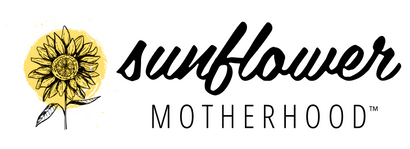Bringing a new life into the world is a beautiful, transformative experience that marks the beginning of a journey known as postpartum recovery. This phase encompasses new mothers' physical and emotional healing after childbirth.
Understanding postpartum recovery is not only crucial for new mothers but also for their support systems. Partners, family members, and friends play an essential role in providing the necessary emotional and practical support during this time. Recognizing mothers' physical and emotional challenges helps support systems offer more targeted assistance.
Furthermore, acknowledging the significance of postpartum recovery is a step toward breaking the stigma surrounding the struggles that new mothers often encounter. Open conversations and education about understanding postpartum recovery contribute to a culture of understanding and compassion, ensuring that mothers receive the support they need to heal physically and emotionally.
As we delve deeper into the various aspects of postpartum recovery, we'll explore the physical changes mothers undergo, the emotional landscape they navigate, practical tips for smoother recovery, and the resources available to assist them on this transformative journey.
Understanding Postpartum Recovery
Postpartum recovery encompasses the process of adjustment and renewal after childbirth, serving as a vital bridge between the monumental event of childbirth and the return to physical and emotional equilibrium.
The significance of postpartum recovery is profound, impacting both the mother's well-being and her ability to care for her newborn. This phase sets the tone for early motherhood, influencing energy levels, emotional state, and interactions with the baby. Adequate recovery is vital for maternal health and fostering a strong bond with the newborn.
While the immediate weeks after childbirth are crucial for physical healing, postpartum recovery extends over several months. This timeline highlights the need for patience and self-care as a woman's body gradually recovers from the changes brought about by pregnancy and childbirth.
The Need for Recovery
The changes that occur during pregnancy, combined with the demands of childbirth, underscore the need for a dedicated postpartum recovery phase. This phase allows the body to heal, repair, and gradually return to its pre-pregnancy state.
The road to recovery is unique for each woman, influenced by factors such as the mode of delivery, overall health, and individual circumstances. New mothers face various physical challenges that require attention and care as their bodies transition back to a state of equilibrium.
- Vaginal soreness is often a result of the stretching and potential tearing of vaginal tissues during childbirth.
-
Perineal tears, especially in cases of vaginal delivery, may require stitches and can lead to discomfort during the recovery period.
- Abdominal muscle separation, also known as diastasis recti, occurs when the abdominal muscles separate due to the expansion of the uterus during pregnancy, requiring focused exercises to regain strength and alignment.
Recovery After C-Section Deliveries
For mothers who undergo cesarean section (C-section) deliveries, the recovery process involves healing from both the surgical incision and the physical toll of childbirth.
Following medical advice, practicing proper wound care, and gradually engaging in light movements to promote healing without straining the incision site are essential. Adequate rest and balanced nutrition support the body's healing process. Purchasing a C-Section recovery kit can give you an array of products that will help you heal. Our favorite is theDeluxe C-Section Recovery Box by Sunflower Motherhood.
Pelvic Floor Health and Recovery
The pelvic floor, a group of muscles supporting the bladder, uterus, and rectum, plays a pivotal role during pregnancy and childbirth. It's essential to prioritize pelvic floor health during postpartum recovery.
These muscles can weaken due to the stress of pregnancy and childbirth, leading to issues such as urinary incontinence and pelvic organ prolapse.Pelvic floor exercises, a well known one being as Kegel exercises, can aid in strengthening these muscles and promoting overall pelvic health.
Hormonal Changes and Their Impact
The hormonal landscape undergoes significant shifts during pregnancy and postpartum, influencing a woman's physical well-being. Hormones like estrogen and progesterone surge during pregnancy to support the growth of the fetus.
After childbirth, hormone levels rapidly decrease, contributing to mood swings, fatigue, and even hair loss. These hormonal changes, combined with sleep deprivation and the demands of caring for a newborn, can make the physical recovery process more challenging.
Emotional Aspects of Postpartum Recovery
While the physical changes after childbirth are noticeable, the emotional journey during postpartum recovery is just as significant. New mothers undergo a range of emotions as they adapt to their new role, which can vary from elation to sadness.
The blend of excitement, fatigue, hormonal changes, and adjusting to the demands of caring for a newborn can create a complex emotional landscape. Feelings of joy, anxiety, overwhelm, and even sadness and nostalgia for pre-baby life can intertwine, making it important to recognize and address these emotions openly.
Understanding "Baby Blues" vs. Postpartum Depression
The "baby blues" is a common and temporary emotional response that many new mothers experience in the days after childbirth. The American Pregnancy Association reports that70-80% of all new mothers experience the baby blues. It's characterized by mood swings, tearfulness, and feelings of vulnerability. Unlike postpartum depression, which is more intense and persistent, the baby blues typically subside within a couple of weeks.
Postpartum depression, on the other hand, is a more severe condition that can arise in the weeks or months after childbirth. It involves persistent feelings of sadness, hopelessness, and a loss of interest in activities. It's important to differentiate between the two and seek professional help if the symptoms of postpartum depression persist.
Postpartum mood disorders encompass a range of conditions, including postpartum depression, anxiety, and obsessive-compulsive disorder. Symptoms may vary, but common signs include severe mood swings, excessive worry, panic attacks, and intrusive thoughts.
Unfortunately, there is still a stigma around postpartum depression and mood disorders.This can make it hard to ask for help or acknowledge your pain and struggles. Talk to your provider as soon as you start feeling any of these symptoms if you can. If you don’t feel ready to do that, chatting with another mom who has been through it or sharing your feelings with your partner, best friend or family member can be a big step in the right direction. Ultimately, it is important that you get the support you need to get through this difficult time. Know that it will not last forever and you are not alone in your suffering. Your support system and provider will recommend tools to help you, such as support groups, therapy or maybe medication.
Managing Emotional Challenges
Prioritizing rest and sleep whenever possible, eating nourishing foods, and engaging in gentle exercises can contribute to emotional well-being. Creating a support network that includes partners, family members, friends, and healthcare professionals ensures you're not navigating this journey alone.
Talking openly about your emotions, whether with loved ones or a mental health professional, can be immensely beneficial. Remember that seeking help is a sign of strength, not weakness. By addressing emotional challenges head-on, you're not only caring for yourself but also creating a nurturing environment for your baby.
Tips for a Smooth Postpartum Recovery
Embarking on the journey of postpartum recovery requires understanding and practical strategies to ensure a smooth transition into this new phase of life. Here are some actionable tips to help you navigate this transformative period with confidence and care.
- Prepare Ahead
Before your little one arrives, take some time to plan ahead. Preparing nutritious meals and freezing them can save you time and energy during those early days when cooking might be challenging. Stock up on essential items like diapers, baby clothes, and toiletries so you can focus on your recovery and your baby. Register for or buy yourself a postpartum recovery kit so that all your postpartum care items are ready for you whenever you go into labor. Our favorite one is theDeluxe Postpartum Recovery Box from Sunflower Motherhood.
- Rest and Sleep
Rest is your body's best friend during postpartum recovery. While the demands of a newborn can be intense, it's crucial to prioritize rest and sleep whenever possible. Nap when your baby naps, and consider enlisting the help of your support system to take care of household tasks while you catch up on much-needed sleep.
- Gentle Postpartum Exercises
Gentle exercises can aid in your recovery by promoting circulation, maintaining muscle tone, and boosting your mood. Engaging in activities like walking, gentle stretching, and pelvic floor exercises can help you gradually regain strength without overexerting yourself. Before starting any exercise routine, consult your healthcare provider, and listen to your body's signals.
- Embrace Self-Compassion
Remember, your body has undergone a remarkable process of creating and birthing life. Be patient with yourself and embrace self-compassion. The physical changes you're experiencing are part of the experience, and it's okay to take things one step at a time. Avoid comparing yourself to others, and set realistic expectations for your recovery journey.
- Seek Help and Support
Don't hesitate to reach out to your support network when you need it. Whether it's your partner, family, friends, or healthcare professionals, these individuals are there to lend a helping hand and offer guidance. Accepting help doesn't make you any less capable — it's a sign of strength to recognize when you need support.
- Listen to Your Body
Throughout your postpartum recovery, listen to your body's cues. If you're experiencing pain, discomfort, or any unusual symptoms, don't ignore them. Reach out to your healthcare provider to address any concerns and ensure your healing is progressing.
Incorporating these practical tips into your postpartum experience can contribute to a smoother recovery and help you navigate this transformative phase more easily. Remember that every recovery journey is unique, so tailor these suggestions to your needs and circumstances.
By caring for yourself, you're also creating a nurturing environment for your baby and setting the stage for a positive postpartum experience.
Postpartum Recovery With Sunflower Motherhood
All of the products from Sunflower Motherhood have been tried and tested by real moms who have experienced the highs, lows, and everything in between as part of postpartum recovery. In fact, the entirepurpose of Sunflower Motherhood is to provide support and care for mamas in any stage of motherhood.
Send apost-partum care package or treat yourself to someself-care today. For any questions,contact us today.







